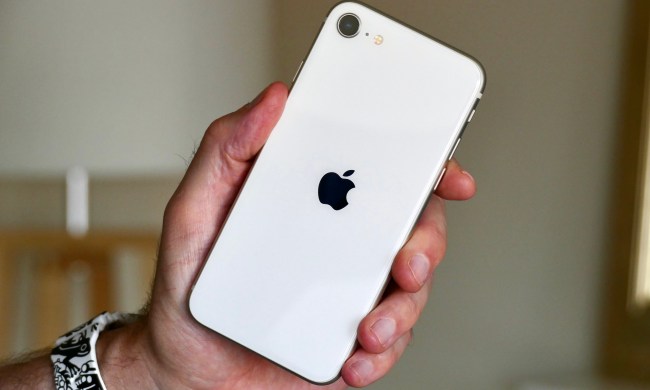
We were pleasantly surprised by the BlackBerry KeyOne when it launched earlier this year. The TCL-manufactured Android smartphone created something of a buzz at MWC. By offering a physical keyboard alongside the 4.5-inch touchscreen, it immediately stood out of the crowd. Now its back in black, as TCL just announced the BlackBerry KeyOne Black Edition at IFA in Berlin.
Our original BlackBerry KeyOne review praised the phone’s battery life, solid build quality, and security, but pointed out a few weaknesses, too. TCL told us they’re pleased with the success of the phone so far, but they’ve been listening to the feedback and the most common request has been a matte black version of the device. The BlackBerry KeyOne Black Edition also gave the firm the opportunity to increase the RAM from 3GB to 4GB and boost the internal storage from 32GB up to 64GB. It still has a MicroSD card slot for expansion.
They say black is slimming, and that seems to apply to phones as well, because the BlackBerry KeyOne Black Edition does look svelte next to its silvery sibling, though they’re actually the exact same size. The matte black finish is understated and feels more in keeping with the BlackBerry brand than the silver, but it’s not entirely black — there are some silver highlights on the buttons.
Here’s the rub — it’s only available in specific markets.
If you’re thinking that this sounds familiar, that’s because a very similar device has been launched in India already, though it’s manufactured by Optiemus Infracom, rather than TCL. There’s also a Space Black version of the BlackBerry KeyOne available exclusively through AT&T, but it lacks the extra RAM and storage space.
The BlackBerry KeyOne Black Edition is manufactured by TCL and it goes on sale very soon — by the end of the third quarter of 2017, so probably in late September. Here’s the rub — it’s only available in specific markets, initially the U.K., Germany, France, Canada, United Arab Emirates (UAE), the Kingdom of Saudi Arabia, and Japan. If you fancy getting your hands on one, then you’ll have to pay 649 euros, 549 British pounds, or 799 Canadian dollars.
Everything that made the original good is retained here, including the 12-megapixel camera, the BlackBerry suite of apps, and that tactile keyboard. The extra RAM and storage in the BlackBerry KeyOne Black Edition is definitely welcome, but we can’t help feeling that the company might have done better updating the Qualcomm Snapdragon 625 processor.
In any case, the fact that TCL is putting out the Black Edition tells you that the phone has been a success. François Mahieu, head of global sales for TCL, told Digital Trends that KeyOne sales have surpassed expectations and we can definitely expect a sequel. But before that, we might just see the release of an all-touchscreen BlackBerry. We’ll have more news for you on that front soon.


